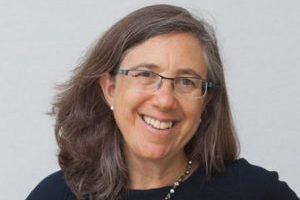Leaders of some of the nation’s largest tax-exempt organizations will meet in New York City tonight and tomorrow to discuss federal tax policy in a first attempt to hammer out a consensus on the charitable sector’s plan for lobbying during an era of changes to the tax code.
The meeting is organized by Ray D. Madoff, a professor at Boston College Law School and the Boston College Law School Forum on Philanthropy and the Public Good. She is a national expert on tax law, trusts and author of “Immortality and the Law: The Rising Power of the American Dead.” Funding for the event is from the Ford Foundation, which is hosting the gathering.
It will be a small but powerful assembly, the venue having room for just 26 seats. Many members of the Leadership 18 confirmed to The NonProfit Times that they will be there, including Brian Gallagher, president and chief executive officer of United Way Worldwide; Nancy Brown, chief executive of the American Heart Association, and Susan Dreyfus, president and CEO of the Alliance for Strong Families and Communities.
Leading off the presentations are Steve Miller, national director of tax, and Dean Zerbe, national managing director, both of alliantgroup. Miller is the former acting commissioner of the Internal Revenue Service (IRS) and commissioner of the IRS’s Tax Exempt and Government Entities Division. Zerbe is the former senior counsel and tax counsel to the U.S. Senate Committee on Finance.
Among others slated to speak are: Stanley Katz, Ph.D., lecturer with rank of professor at the Woodrow Wilson School of Public and International Affairs at Princeton University; Una Osili, professor of economics and director of research at The Lilly Family School of Philanthropy; Roger Colinvaux, director, Law and Public Policy Program and professor of law at The Catholic University of America; Brian Galle, professor of law at Georgetown Law; Rob Reich, professor of political science and faculty co-director, Stanford Center on Philanthropy and Civil Society; and, C. Eugene “Gene” Steuerle, the Richard B. Fisher chair and institute fellow at the Urban Institute.
Ford Foundation President Darren Walker will also make comments. Other than Madoff, attendees spoke on background only, citing an agreement to keep the discussions confidential so that an open exchange of ideas could occur.
“Our goal is to provide useful information to nonprofit leaders so that they can effectively engage in conversations about tax reform and the nonprofit sector. We have a follow-up meeting planned for April to continue the conversation,” said Madoff.
The meeting comes at a time of unrest when it comes to tax policy and sector leadership impact in Washington, D.C. Central to the mix of people in the room will be the long-simmering tensions between leaders at charitable organizations and foundations, who often have differing points of view on solicitation of donations and distribution of donor and foundation assets. Sure to come up are the use of donor-advised funds, donor intent, excise taxes, converting appreciate assets and the percentage of asset distribution by foundations.
Changes to the tax code are being discussed in Congress. President Donald Trump said during the campaign his idea of tax reform is taxpayers who can currently deduct giving at the 39.6 percent rate having that cut to 33 percent and limiting deductions to $200,000 per couple.
The meeting is called the Centennial Leadership Conference on Nonprofit Tax Reform. According to Madoff, it was given that moniker because it has been 100 years since the enactment of the estate tax and the income tax, which is also the 100th anniversary of rules providing tax benefits for transfers to nonprofits.
Madoff has been an outspoken thought leader on tax policy and the impact on charitable giving. She provided the following as a backdrop to the discussion:
“Philanthropy and the charitable sector are the institutional embodiments of society’s highest ideals: the voluntary commitment of time and resources in pursuit of making the world a better place. It is because of these important ideals that the government chooses to subsidize charitable activities through the tax code. However, experience teaches us that legislation and regulation do not always produce optimal results. It is vital for society to regularly revisit the enacted rules (as well as carefully study proposed legislation) and ask whether they adequately further the accomplishment of desired goals. This inquiry also serves to strengthen the philanthropic sector, as any real or perceived disconnect between the charitable sector and the public good undermines public confidence and invites reactive legislative intervention.”
Simmering below the surface has been discussion of who should be leading the sector regarding on tax policy. Several of the leading organizations have had downsizing and reorganizations, such as Independent Sector, the Association for Fundraising Professionals and the Council on Foundations. Those speaking to The Nonprofit Times on background said they don’t expect those issues to be hashed out at this meeting and the follow-up in April









